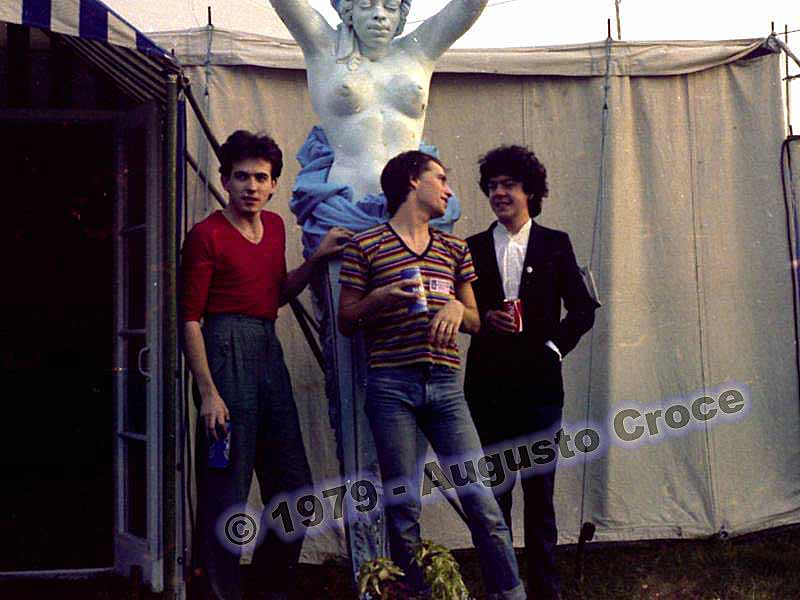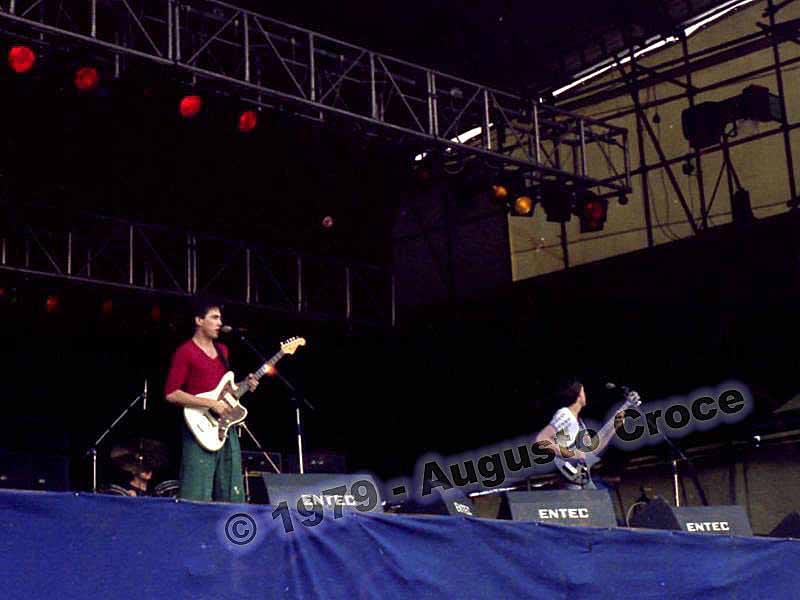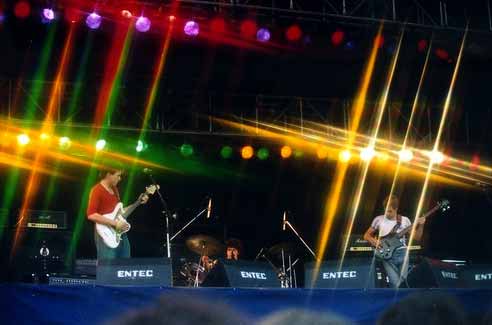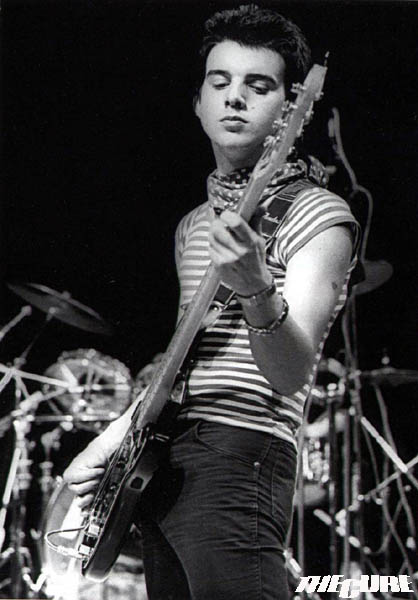This was the first Cure album I bought at the time of its release in 1989.
It was a very successfully marketed product having an award winning film clip for Lullaby and The Cure also releasing for the first time, separate introductory singles (Lullaby & Fascination St.) in the UK & US. The Cure here desperately trying to catch the US market. But it wasn't until Lovesong was released as the third single, that the Cure had their first & most successful US hit, reaching #2 in the billboard hot 100.
The Cure's marketing team worked into overdrive with this release, releasing a picture disc of the album, 2 Lullaby 12", many 7" & 12" of Pictures Of You with different covers and also releasing the Lovebox, featuring a tartan print and Lovesong 7" in a box (I used to own them all). This was right at the end of the Vinyl heyday!
I have not listened to Disintegration for a long time, in fact I didn't even own a digital copy as I had copies on tape & vinyl. After revisiting the album I have to say that this is The Cure's Magnum Opus. Even though I am a fan of their earliest work, there are some important key elements that make this album their best.
When I was a teenager I played electric bass, part of the attraction of the Cure for me was Michael Dempsey's Bass work on their first album Three Imaginary Boys released in 1979. Matthew was renowned for playing bass solo's and part of the Cure's early charm was that the electric bass played an important melodic and atmospheric role. 10:15 Saturday night released in 1978 (the B side of their first single), highlights this the most from their debut Album.
The Cure at the Reading Rock Festival in 1979 where they played with bands such as The Police, & Motorhead.
http://www.ukrockfestivals.com/reading-79.html http://www.cureconnections.com/cure-chat/2065-reading-festival-24-august-1979-20-pictures.html
A review of The Cure in 1978 at the Hope & Anchor
http://www.picturesofyou.us/78/79-1-uk-nme%2012-78-%20hopeandanchor%20review.htm
A Bass forum talking about Mick Dempsey's Bass
http://www.talkbass.com/forum/f8/new-bass-im-guild-heaven-80303/
A Bass forum talking about Mick Dempsey's Bass
http://www.talkbass.com/forum/f8/new-bass-im-guild-heaven-80303/
When Simon Gallup on Bass joined in 1980 (more of a punk rocker than funkster such as Dempsey), the importance of Electric Bass stayed. The Bass Guitar might have changed from a Guild B301 to a Fender Precision Bass (more of a fit with Robert's Fender Jaguar!!!), but the Bass Solo remained in the 1980 release 17 Seconds, featuring on the track At Night.
Simon's black Fender also featured in important melodic hooks such as the track Secrets. But it was the bassline for A Forest that stood out, which has since become a Cure trademark.
Simon's black Fender also featured in important melodic hooks such as the track Secrets. But it was the bassline for A Forest that stood out, which has since become a Cure trademark.
The Bass guitar was an important instrument for The Cure. In fact the single Primary released in 1981 featured no guitars, with Rob Smith playing a black Fender Precision Bass as well as Simon Gallup. This can also be seen in their video on Countdown in Australia and Top of the Pops in the UK.
Why all of this talk with Electric Bass and early The Cure albums when reviewing Disintegration?
Because of this:
Because of this:
Fender Bass VI
Robert Smith playing his Fender Bass VI September 4th 1989
You first hear it @ 1:28 during the first track Plainsong.
As taken from wikipedia: http://en.wikipedia.org/wiki/Fender_Bass_VI
"The Fender Bass VI, originally known as the Fender VI, is a six-string electric bass or Scale Baritone Guitar by Fender.
The Fender VI was released in 1961, and followed the concept of the Danelectro 6-string bass released in 1956, having six strings tuned E-E, an octavebelow the Spanish guitar. Its other ancestor was the Fender Jazzmaster, with which it shared many styling and technical details. Its body and electronics so closely matched those of the Fender Jaguar, released the following year, that in all but name the Fender VI was a precursor to that model.
It departed from the concept of the Fender Precision Bass not only in having six strings, but also in having a shorter scale and thinner strings."
Notice that Robert Smith used a Fender Jaguar and Simon Gallup used a Fender Precision Bass during the first albums of the band.
The Fender Bass VI is used to great effect in Disintegration. As mentioned
http://theband.hiof.no/articles/fender_bass_vi.html, the baritone guitar tone gives a melancholic spooky sound when used as a lead guitar, that helps enforce the atmosphere of the album. The Fender Bass VI is the icing on the cake that gives the album that famous "Cure Atmospheric & Melancholic Sound."
It just isn't the atmosphere and sound that is important but the vocals and lyrics. Robert Smith is at his best here, from the classic scary goth single Lullaby to the curious/dark side of human nature with Fascination St, the mellow meloncholic Homesick or the ultra-emotional Prayers For Rain. I also suggest reading reviews elsewhere about this album (I particularly like Stephen Thomas Erlewine of Allmusic review who called it the "culmination of all the musical directions the Cure were pursuing over the course of the '80s." Other reviews will go into more general detail about the album, but my focus will be more from a musician & audiophile perspective.
http://www.bbc.co.uk/music/reviews/jqrj
http://pitchfork.com/reviews/albums/14288-disintegration-deluxe-edition/
http://en.wikipedia.org/wiki/Disintegration_(The_Cure_album)
http://www.allmusic.com/album/disintegration-r4933
Roger O'Donnell on keyboards adds an important dimension to the album that had been missing since the 1980 release Seventeen Seconds. Thankfully there he doesn't use Synths with digital sampling too much as the early digital sampling synths sound quite awful.
Instruments used on the album
http://www.impressionofsounds.com/equipment.html
1989
Robert Smith :National Val Pro 88 guitar
Ovation Custom Legend 12-string acoustic guitar
Dubreuille R.Smith Signature model (US tour only)
Fender Bass VI (black, previously white)
Boss pedals
Porl Thompson :
Gibson ES-175 Bigsby modified
Gibson ES-345 guitar
Coral sitar
Simon Gallup :
Washburn semi-acoustic custom bass
Musicman StingRay bass
Roger O'Donnell :
Roland JX-8P synth
Korg M1 synth
Fast Forward Designs MIDI Step pedals
Oberheim sample player
The intentional lo-fi nature of the mix gives the instant melancholy in your face feel.
*****STILL WORKING ON IT*****







No comments:
Post a Comment